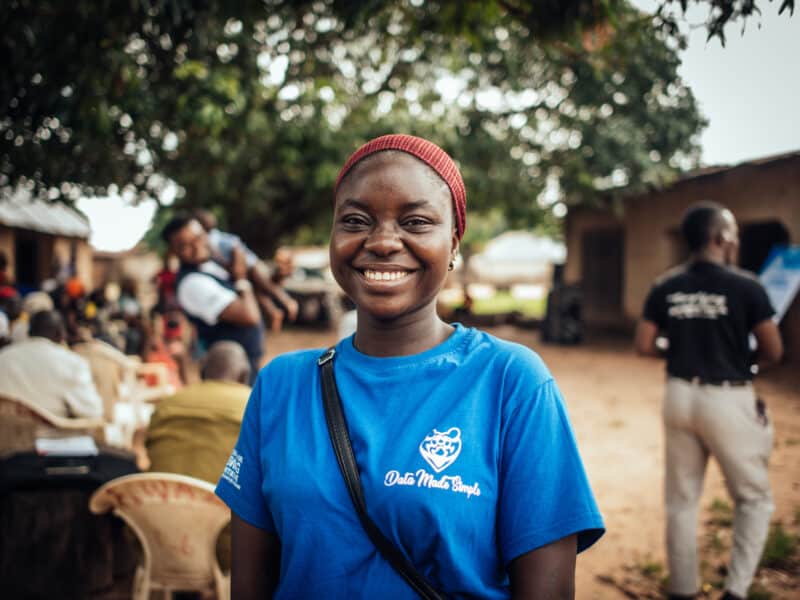Sharing failures and mistakes made in global health programs and learning from them can enhance problem-solving, encourage innovation by fostering a culture that supports taking calculated risks, and improve quality by preventing some future errors, new findings from the Johns Hopkins Center for Communication Programs suggest.
The work, published Jan. 3 in the Stanford Social Innovation Review, includes a literature review, a survey of global health professionals and practical experience gained from organizing failure-sharing events. The authors say that while sharing successes is a great way to learn about best practices, sharing failures in the right context should be encouraged because it can be just as valuable in improving future programs.
“We are really good at showcasing our successes and, for obvious reasons, we tend to hold on to failures a little bit more closely,” says study leader Ruwaida Salem, team lead for knowledge solutions at the CCP-led Knowledge SUCCESS project.
“What we have learned is that we can actually learn more from our failures if we share them. The act of sharing helps you to dive a little bit further into it and puts you in a role where you’re sharing advice. So it creates that opportunity for you to reflect on that experience instead of trying to bury it.”
In a survey conducted by Salem and her colleagues to better understand the dynamics of sharing failure in the global health community, they found that global health professionals do recognize (at least in theory) the importance of sharing failures with each other: Of the 302 program managers, technical advisors, researchers, and other global health professionals around the world who responded, 96 percent said they think it’s important for global health professionals to share their failures with each other.
But when they asked respondents if they had shared a failure in the past six months with different categories of people — a colleague within their organization, a colleague from a different organization, and their donor — they found a progressively diminishing percentage of respondents who said they had, from 72 percent to 41 percent to 23 percent, respectively. These results track with other research showing that people systematically under-share failures.
In a donor-driven context, many people reported that sharing failures with donors could lead to a risk of losing resources.
Sharing failures can take many forms. One is called the “fail fair,” a breezy get-together after work hours, where a great storyteller tells a funny story about something that went wrong in a global health program and shares a lesson. While the fail fair has its place, Salem says the best lessons don’t always have to come from the funniest person. The stories can be laid out simply and quickly, allowing others to feel safety in sharing what has gone wrong in their programs, and to take stock. And they can be done in small groups to make people feel more comfortable.
The whole idea, Salem says, is to foster a non-threatening environment that allows people to open up about what went wrong without fearing punishment. Salem says that one barrier to sharing failure is often the fear of repercussion, and she hopes organizations can find a way to create safe spaces where the goal of learning from mistakes is paramount – and no one feels “thrown under the bus.”
Since 2022, Knowledge SUCCESS has been hosting cross-organizational events to encourage global health professionals in sub-Saharan Africa, Asia, and the U.S. to share their failures with each other.
“We wanted to get more people talking about failures—not just the funny storytellers—and help facilitate a dialogue with their colleagues, so that both the person sharing the failure and the people hearing about the failure can learn from the experience,” the authors write.
An expert from the NGO Fail Forward told Knowledge SUCCESS staff that it’s more important to get people talking about whatever failure they are comfortable sharing than being particular about specific types of failure, so the project decided to take a broad approach to its definition. It defines failures in global health as any situation where the results do not meet expectations.
This broad definition encompasses a range of failures from incorrectly executed tasks to undesired performance outcomes and from “unavoidable” to “intelligent” failures. “What’s important is to share what works and what doesn’t work in global health so that what was once unpredictable can become predictable and, therefore, avoidable in the future,” says study co-author Neela Saldanha, executive director at the Yale Research Initiative on Innovation and Scale.
In 2022 and 2023, Knowledge SUCCESS hosted a series of four virtual events focused on improving through failure in collaboration with other partners and plans to continue hosting additional events in the future.
Among the recommendations from the research team is to pay close attention to how failure sharing is framed: “As much as global health professionals recognize the importance of sharing failures, it’s still hard for people to deal with failure: they may feel embarrassed or find it a painful experience,” the authors write.
“While some may argue that we need to be direct and call a failure a failure, we think it’s more important to get people to share their experiences.”
“It’s Time to Share Our Failures,” was written by Ruwaida Salem, Neela A. Saldanha, Anne Ballard Sara, Elizabeth Tully and Tara M. Sullivan.





